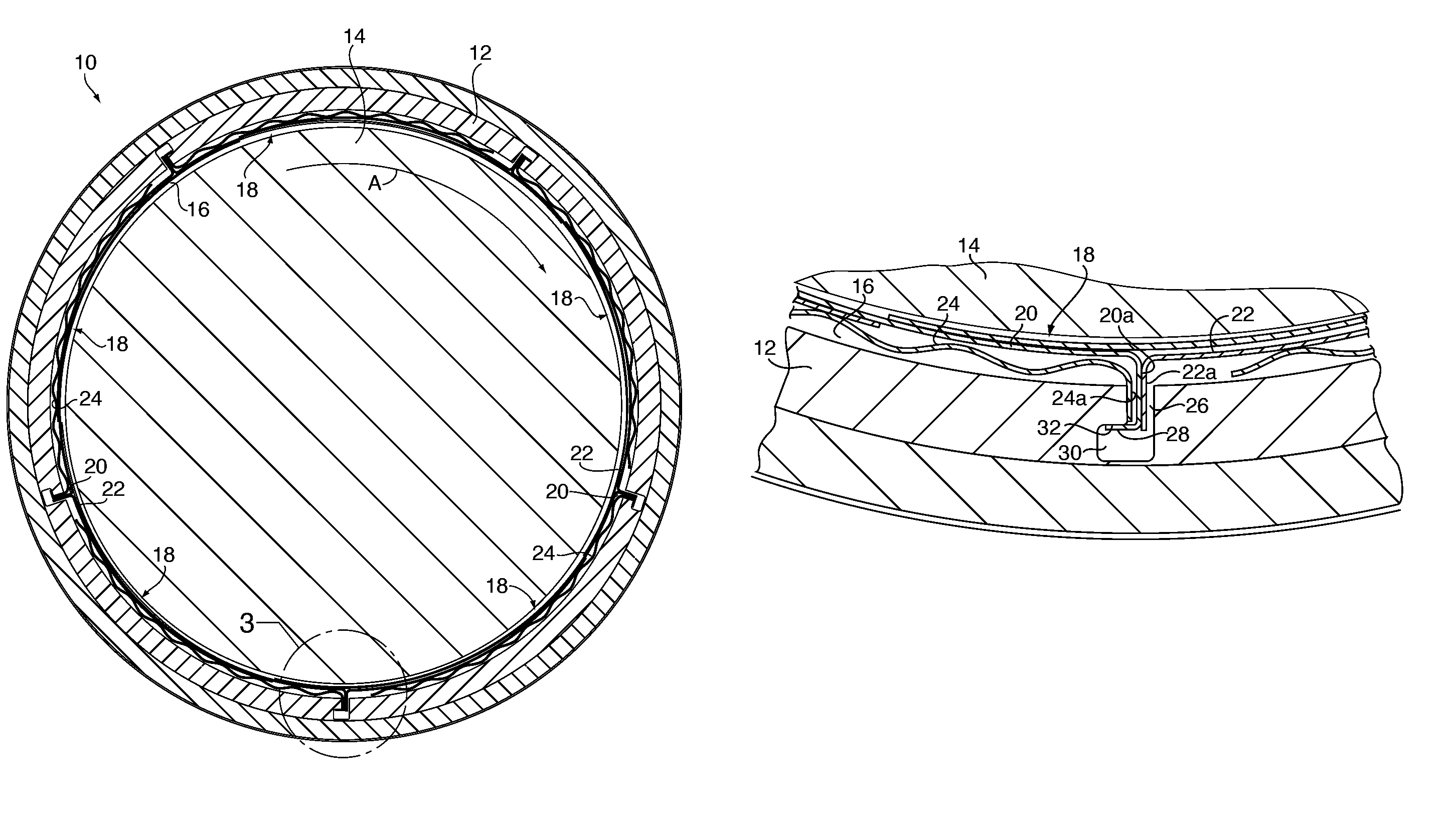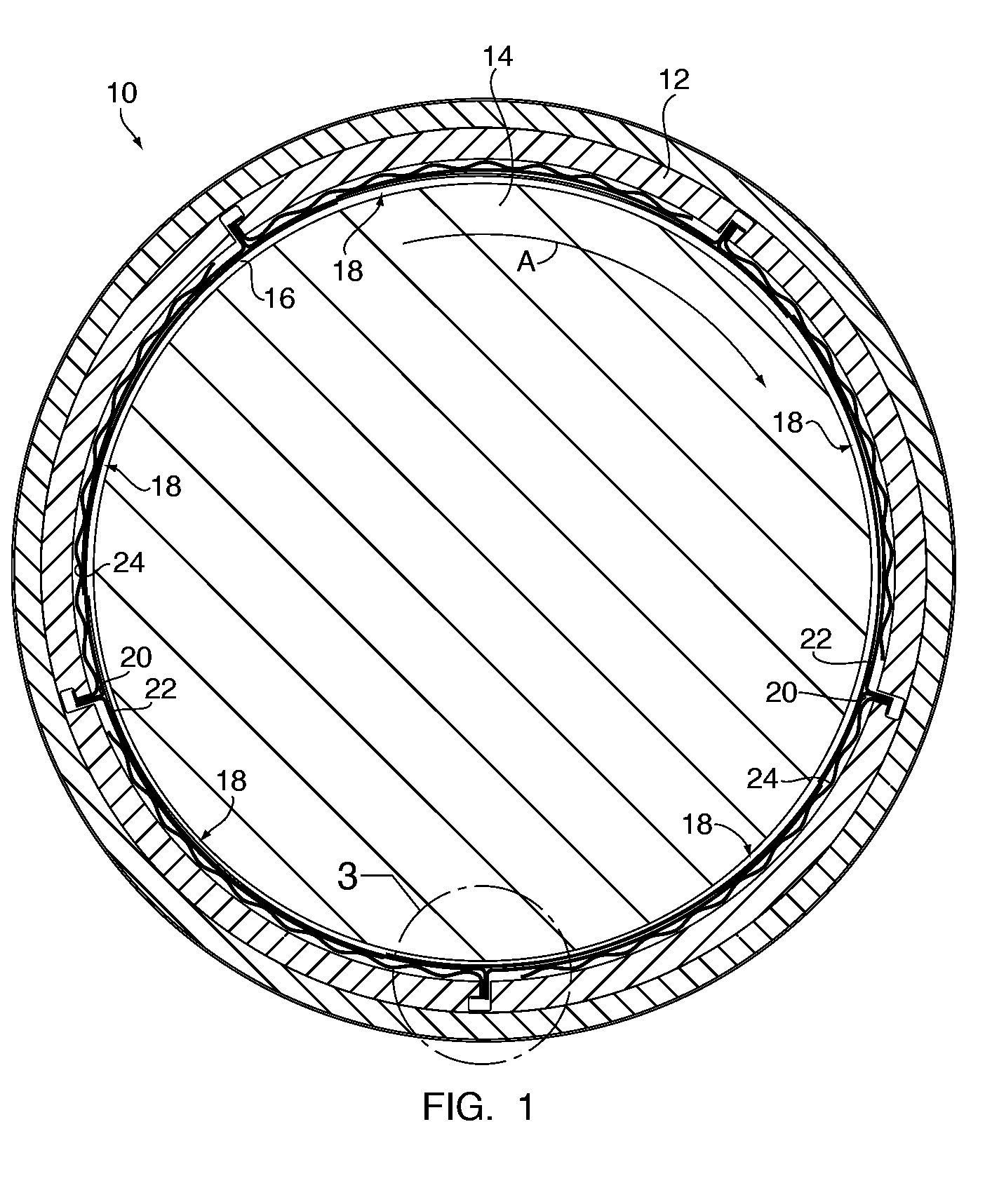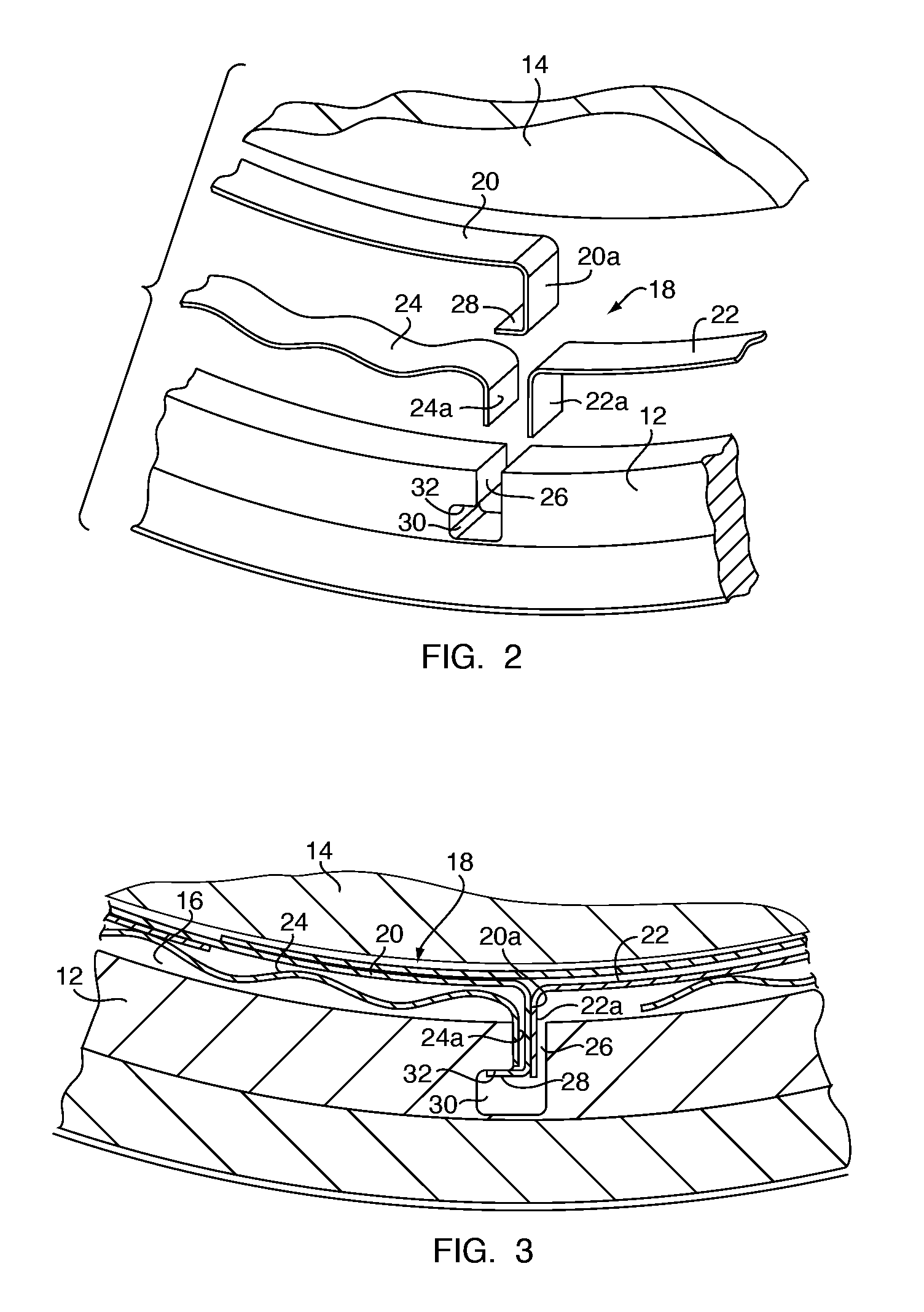Restrained, reverse multi-pad bearing assembly
a multi-pad bearing and bearing assembly technology, applied in the direction of bearings, shafts and bearings, rotary bearings, etc., can solve the problems of limited relative foil movement, unidirectional and overlap of foils, limited utilization of such bearings for high-speed rotating machinery, etc., to reduce inconsistencies in foil assemblies, eliminate looseness of foil assemblies, and improve design control
- Summary
- Abstract
- Description
- Claims
- Application Information
AI Technical Summary
Benefits of technology
Problems solved by technology
Method used
Image
Examples
Embodiment Construction
[0025]A goal of the present invention is to design a foil bearing assembly that can be kept loaded at a desired level to maintain the desired compliancy of the foil elements during operation. In order to achieve this goal, the bearing assembly must avoid undesirable radial deflection, rotational slipping, and telescoping within a stationary retaining member. Radial deflection, or “pop up”, of one or more foils due to, for example, whirl of the shaft or imbalanced loading of the bearing assembly, compromises compliancy of the foils and thus affects the operation and efficiency of the system. Accordingly, the present invention relates to a hydrodynamic fluid film bearing assembly of the reverse multi-pad design with features designs to prevent radial deflection, rotational slipping and telescoping within a stationary retaining member, shown generally in FIGS. 1-3. Indeed, the features of the present invention relates to a “restrained reverse multi-pad bearing” design that overcomes th...
PUM
 Login to View More
Login to View More Abstract
Description
Claims
Application Information
 Login to View More
Login to View More - R&D
- Intellectual Property
- Life Sciences
- Materials
- Tech Scout
- Unparalleled Data Quality
- Higher Quality Content
- 60% Fewer Hallucinations
Browse by: Latest US Patents, China's latest patents, Technical Efficacy Thesaurus, Application Domain, Technology Topic, Popular Technical Reports.
© 2025 PatSnap. All rights reserved.Legal|Privacy policy|Modern Slavery Act Transparency Statement|Sitemap|About US| Contact US: help@patsnap.com



